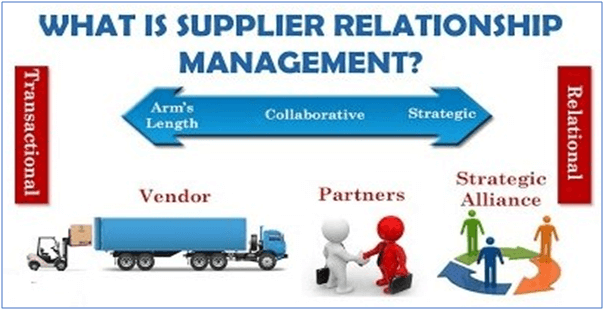Supplier relationship management (SRM) is the process of managing relationships with suppliers to maximize value and performance. It involves developing trust, collaboration, and mutual benefits between the buyer and the supplier. Implementing effective SRM strategies can lead to improved quality, reduced costs, increased innovation, and better overall supplier performance.
The Importance of Supplier Relationship Management
Building strong relationships with suppliers is crucial for organizations to thrive in today’s highly competitive market. Effective SRM fosters strategic partnerships, aligns objectives, and ensures that suppliers become an extension of the organization’s value chain. It helps organizations gain a competitive edge by enabling them to leverage the expertise, capabilities, and resources of their suppliers.
Benefits of SRM
Implementing robust SRM strategies offers several benefits:
Improved quality control: Close collaboration with suppliers helps maintain consistent quality standards.
Cost savings: SRM strategies focus on optimizing costs and lowering the total cost of ownership.
Innovation: Strong supplier relationships often lead to increased access to supplier innovation, which can drive organizational growth.
Reduced supply chain risks: By developing strong partnerships, organizations can mitigate potential risks in the supply chain.
Enhanced agility: Effective SRM allows organizations to quickly respond to market changes or disruptions.
Key SRM Strategies
Supplier Segmentation
Supplier segmentation involves categorizing suppliers based on various criteria such as spend, risk, criticality, and strategic importance. By segmenting suppliers, organizations can allocate resources and develop tailored strategies for each segment. High-value and strategic suppliers may require more attention and investment to build long-term relationships and foster innovation.
Clear Communication
Establishing open lines of communication is vital for successful SRM. Clear and transparent communication helps build trust, facilitates shared understanding of goals, and ensures alignment. Regular communication channels, such as quarterly business reviews and performance scorecards, enable both parties to discuss expectations, address issues, and identify opportunities for improvement.
Collaborative Supplier Development
Collaborative supplier development involves working closely with suppliers to enhance their capabilities, improve processes, and drive innovation. This may include joint problem-solving initiatives, knowledge-sharing, and training programs. Collaborative development fosters long-term partnerships and provides a competitive advantage by enabling suppliers to meet evolving customer requirements.
Performance Measurement and Metrics
Developing performance measurement metrics is essential to monitor and evaluate supplier performance. Key performance indicators (KPIs) should be established to measure critical areas such as quality, delivery time, responsiveness, and cost. Regular performance assessments allow organizations to identify areas of improvement and create action plans to achieve desired outcomes.
Supplier Relationship Governance
Effective governance ensures that SRM strategies are implemented consistently and that supplier relationships are managed efficiently. This involves establishing clear roles and responsibilities, defining escalation processes, and implementing regular performance reviews. A robust governance framework provides a structured approach for managing and improving supplier relationships.
Continuous Improvement
SRM is an ongoing process that requires continuous improvement. By regularly reviewing and refining SRM strategies, organizations can adapt to changing market dynamics and evolving business needs. Continuous improvement practices include benchmarking against industry best practices, capturing feedback from stakeholders, and implementing corrective actions to address gaps or challenges.
Conclusion
Supplier Relationship Management strategies play a pivotal role in optimizing supplier partnerships and driving organizational success. By focusing on building strong relationships, effective communication, collaborative development, performance measurement, governance, and continuous improvement, organizations can unlock the full potential of their supplier network. Prioritizing SRM can lead to enhanced quality control, cost savings, increased innovation, reduced supply chain risks, and improved overall supplier performance.
